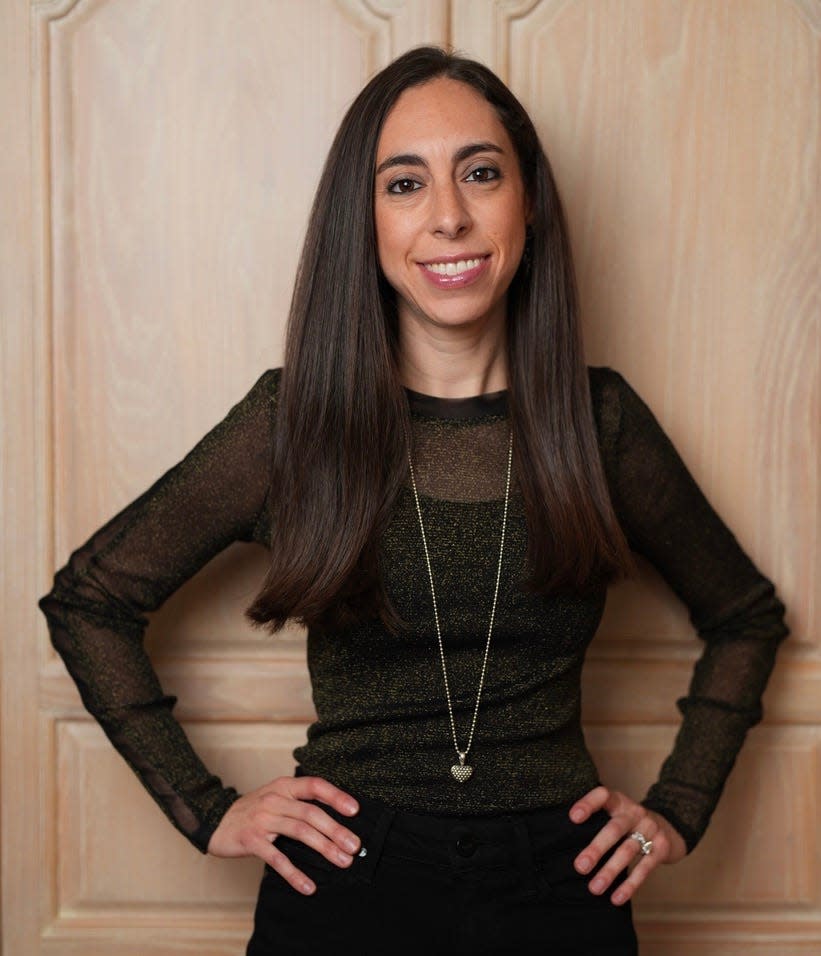It Took Me 13 Years to Get a Diagnosis: Read My Top Tips for Getting the Care You Deserve

One morning just after my 21st birthday, I woke up struggling to walk because severe pain and stiffness limited the use of my legs. Straightening them was nearly impossible, and the throbbing pain only worsened as I tried to move. I’d never been sick before with more than a viral infection, and I knew I hadn’t injured myself recently, so I thought maybe I had a vitamin deficiency. I assumed I would see a doctor, get treated, and be able to return to normal in a few weeks.
But no one seemed to know what was wrong with me. A trip to the ER didn’t give me any answers, and my family physician was quick to discount my story. I was about to begin graduate school, and I knew that if I postponed my studies, I might never return. So, as I started a two-year master’s program, I also began my search for a diagnosis. The stiffness eased over the coming weeks and I learned to push through the pain while accepting that frequent sitting breaks were now part of my life.
This was followed by years of ongoing appointments with specialists in rheumatology, orthopedics, gastroenterology, endocrinology, neurology, and even a visit to a diagnostic center 1,100 miles from my home. Meanwhile, my legs weakened, and I couldn’t walk far or stand more than a minute or two. Muscle twitches constantly flickered beneath my skin.
As I bounced from one doctor to the next, I became more hopeless with each failed appointment. I was constantly having to prove myself to doctors, and it consumed my energy, leaving me depleted and unrecognizable to myself. At times, I was hopeless and wanted to give up—some doctors even told me to. But I wanted my life back more than anything, so I didn’t stop until I had an answer.
It took 13 years, but I finally found a neurologist who listened to me and was willing to do the hard work of searching for answers. Seven years ago I was finally diagnosed with multiple sclerosis. I’ve been on my current medication for six years—while it took a few years for this treatment to calm disease activity, my strength has greatly improved. I can go to museums, take my children to their soccer games, cook dinner, and take walks. After all these years, I feel alive again.
Here’s what I learned along the way:
1. No amount of time means it’s time to give up
As the years went by, it was easy to feel as though time was running out. It seemed that the further I was from the day my symptoms began, the less likely it was that I’d receive an answer. But being undiagnosed doesn’t mean a diagnosis is forever out of reach. It just takes one doctor to listen, to order the appropriate medical testing, and to provide the correct diagnosis. Finding that doctor can take time, but it’s worth every moment if it connects you with a treatment that slows disease progression or allows for physical improvement.
2. Keep meeting with new doctors
You need to find a physician who is skilled at putting puzzle pieces together to form an answer...one who will notice unusual presentations of common diseases as well as rare diseases that often go unidentified. I found that some doctors are less interested in taking the time and energy required to solve a difficult case while others thrive on a challenge. If you don’t know which specialty your disease falls into, see doctors in every area. If an appointment ends without an answer, ask the doctor if they can you refer you to another provider who may be able to help. Keep telling your story, because that’s how you find the doctor who will diagnose you.
3. Learn how to research
Many doctors advise against Googling your symptoms, but if you know which sources to trust (mainly national medical associations and research studies published by reputable medical journals), doing your own research can be helpful. When I felt trapped, reading studies allowed me to be proactive. Often, I brought information I found online to my appointments. A few times, I even contacted the author of a study I’d read, asking for an opinion on my case. Sometimes I never heard back. But other times, a response provided me with information I could take to my next appointment.

4. Allow yourself space to grieve
Each time I returned home from a failed appointment, I’d sit on my bathroom floor and cry. That was my designated space to release anger and self-pity. Crying is not only okay, it helps you regain balance, enabling you to keep going against all odds. In that space, I acknowledged that I was on an unfair, difficult journey, and I felt my grief. When I opened the door, I left that space, along with the heavy emotions holding me down, and was prepared to push onward once again.
5. Ignore the unhelpful comments
Go home and have a martini (yes, a doctor actually said this to me!). You need to exercise more. The unhelpful comments I received from physicians were abundant. I allowed myself to cry, vent, and scream once the appointment was over. But then I let it go. Dwelling on these comments for too long can lead to hopelessness and defeat. Ignore them and move on.
6. Organize your paperwork
Being an undiagnosed patient can feel like a full-time job, but being organized can make all the difference—and doctors are more willing to spend time and energy on your case when they have all the information they need. Keep track of your medical reports and lab work through online patient portals. Save a copy to your computer or print them for a paper file. Bring them to your appointments or have them sent digitally beforehand so doctors have up-to-date information at their disposal.
7. Write down questions before appointments
I found it helpful to keep a list of my symptoms and how they progressed over time. Even though I knew my story thoroughly, it became more complicated each year, and it was hard to recall every detail in order with the doctor sitting in front of me. Type questions for upcoming appointments into the Notes app on your phone or jot them down on a piece of paper. You sometimes only get 20 minutes for an initial appointment—preparing in advance helps ensure the limited time will be well spent.
8. Remember, you know your body best
Doctors often tried to convince me I wasn’t actually experiencing the symptoms I described. “Show me,” a neurologist demanded after I told him about the relentless muscle twitches I had. Others thought I was exaggerating, that I couldn’t possibly be as weak as I said, and that I was simply being lazy. I learned to be assertive but not aggressive—to stand up for myself firmly while controlling the emotional reactions beneath my surface. If an appointment turned into a debate, I knew that doctor wasn’t the one I was searching for. The doctor who finally gave me my diagnosis never once questioned my words.
9. Take breaks from the medical journey
When you feel like you’re at a dead end, you’re not. But feeling stuck could be a sign you need time away from the medical setting—even if it’s just days or weeks. Telling the same story over and over to different physicians is exhausting; a break can be rejuvenating. When my husband and I were ready to have children, it seemed as though an answer was still lightyears away. I didn’t want this disease to rule my life, so while continuing care with a doctor I was seeing at that time, I took a break from seeking out new physicians while we started our family. This enabled me to refocus my mindset and to keep working toward the life I always wanted.
10. Find your community
My family was there for me physically, but they couldn’t fully comprehend my feelings of despair, fear, and anger. Eventually, I found The Mighty, an online platform where I could write about my experiences to help others who were searching for a diagnosis and there I also find found validation through stories similar to mine. I discovered that even those with the same disease experience their illness independently and no two people have the same story.
You Might Also Like
